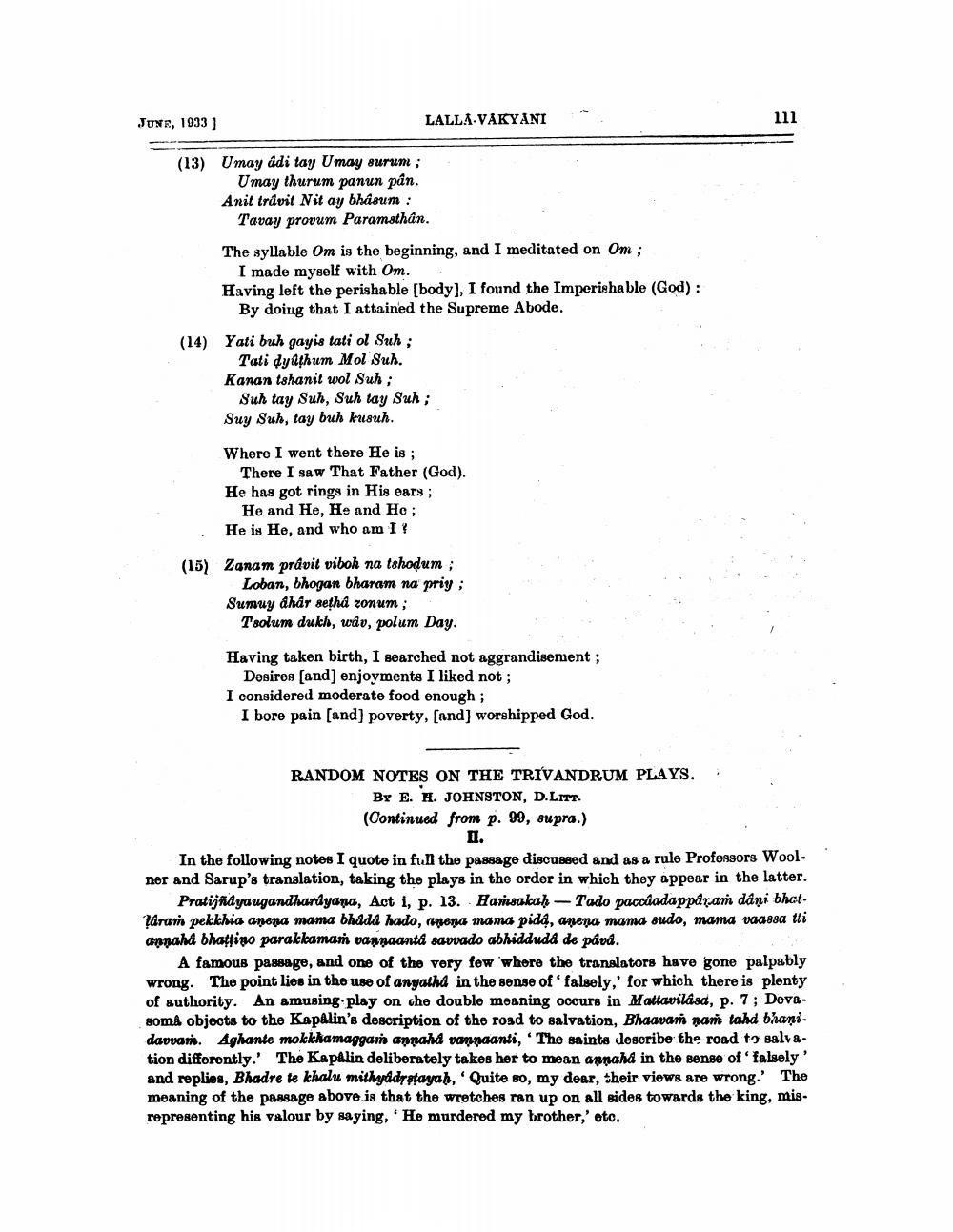________________
JUNE, 1933]
LALLA-VAKYANI
(13) Umay âdi tay Umay surum; Umay thurum panun pân.
Anit trávit Nit ay bhásum:
Tavay provum Paramsthân.
The syllable Om is the beginning, and I meditated on Om;
I made myself with Om.
Having left the perishable [body], I found the Imperishable (God): By doing that I attained the Supreme Abode.
(14) Yati buh gayis tati ol Suh;
Tati dyathum Mol Suh. Kanan tshanit wol Suh;
Suh tay Suh, Suh tay Suh; Suy Suh, tay buo Fusuh.
Where I went there He is ;
There I saw That Father (God).
He has got rings in His ears; He and He, He and He; He is He, and who am I?
(15) Zanam pravit viboh na tshoḍum;
Loban, bhogan bharam na priy; Sumuy dhár setha zonum;
Tsolum dukh, wav, polum Day.
Having taken birth, I searched not aggrandisement; Desires [and] enjoyments I liked not;
I considered moderate food enough;
I bore pain [and] poverty, [and] worshipped God.
RANDOM NOTES ON THE TRIVANDRUM PLAYS. By E. H. JOHNSTON, D.LITT.
(Continued from p. 99, supra.)
II.
111
In the following notes I quote in full the passage discussed and as a rule Professors Woolner and Sarup's translation, taking the plays in the order in which they appear in the latter. Pratijnayaugandhardyana, Act i, p. 13. Hamsakah-Tado paccaadapparaṁ dâņi bhattáram pekkhia anena mama bhada hado, anena mama pida, anena mama sudo, mama vaassa tti annahâ bhattino parakkamaṁ vannaanta savvado abhiddudá de pává.
A famous passage, and one of the very few where the translators have gone palpably wrong. The point lies in the use of anyatha in the sense of ' falsely,' for which there is plenty of authority. An amusing play on the double meaning occurs in Mattavilása, p. 7; Devasoma objects to the Kapalin's description of the road to salvation, Bhaavam nam tahd bhanidavvam. Aghante mokkhamaggam annahd vannaanti, The saints describe the road to salvation differently.' The Kapalin deliberately takes her to mean annahd in the sense of 'falsely' and replies, Bhadre te khalu mithyddrstayah, 'Quite so, my dear, their views are wrong.' The meaning of the passage above is that the wretches ran up on all sides towards the king, misrepresenting his valour by saying, ' He murdered my brother,' etc.




